Best AI tools for< Multitask >
16 - AI tool Sites

SigmaOS
SigmaOS is a revolutionary AI-powered browser application that offers a fresh and organized browsing experience. It features innovative tools such as Workspaces for tab organization, Vertical tabs for task management, Split Screen for multitasking, Lazy Search for quick searches, and Ask Anything for contextual information retrieval. With advantages like ad-free browsing, focus mode, easy migration, and community support, SigmaOS aims to simplify and enhance users' internet interactions. However, it has limitations such as being available only on macOS and lacking support for Windows. SigmaOS leverages AI technology, including the A1Kit browser engine, to provide intelligent assistance and streamline daily tasks.
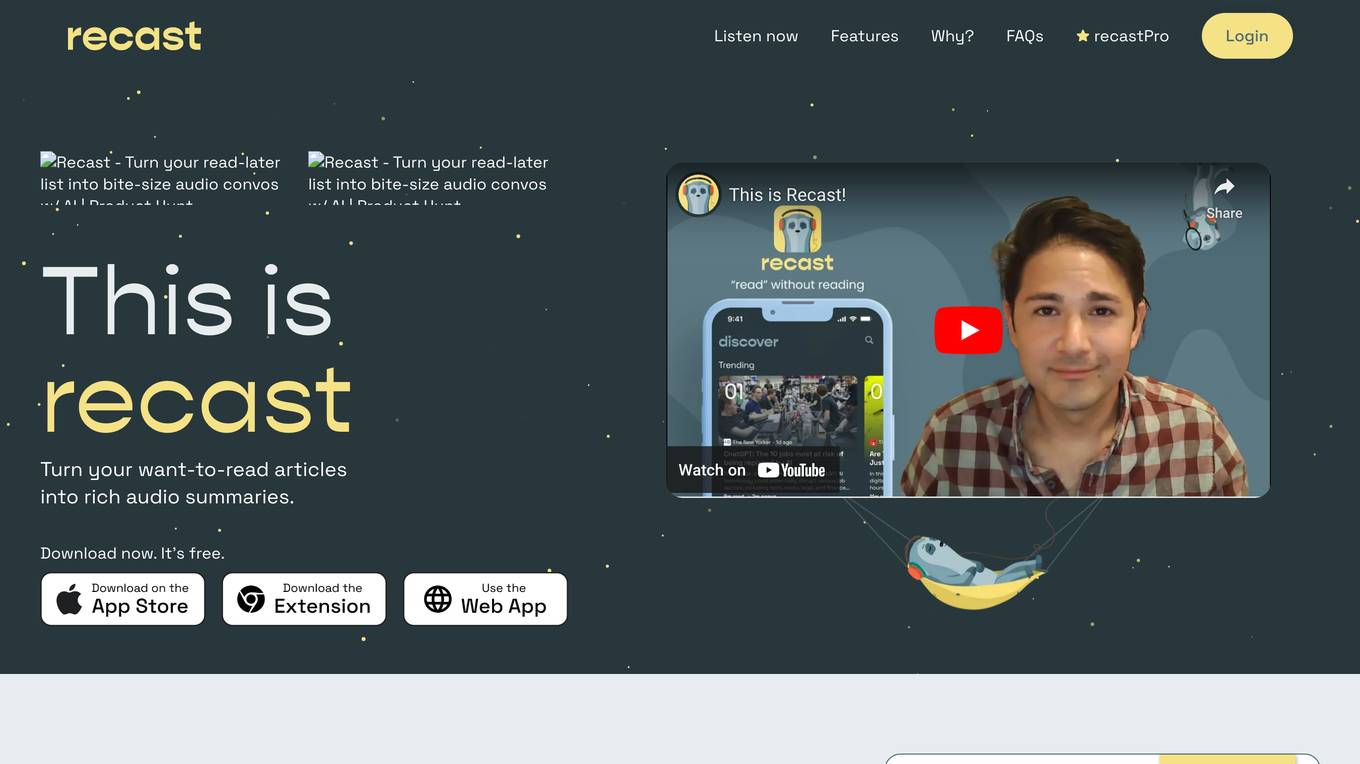
Recast
Recast is a platform that transforms articles into rich audio summaries, making it easier for users to consume content on the go, while working out, or simply looking for a more convenient way to stay informed. It provides entertaining, informative, and easy-to-understand audio conversations, helping users save time, reduce screen-time, understand content more deeply, discover interesting stories, and clear their reading list. Recast aims to enhance the reading experience by converting long articles into engaging podcasts, enabling users to enjoy content in a conversational format.
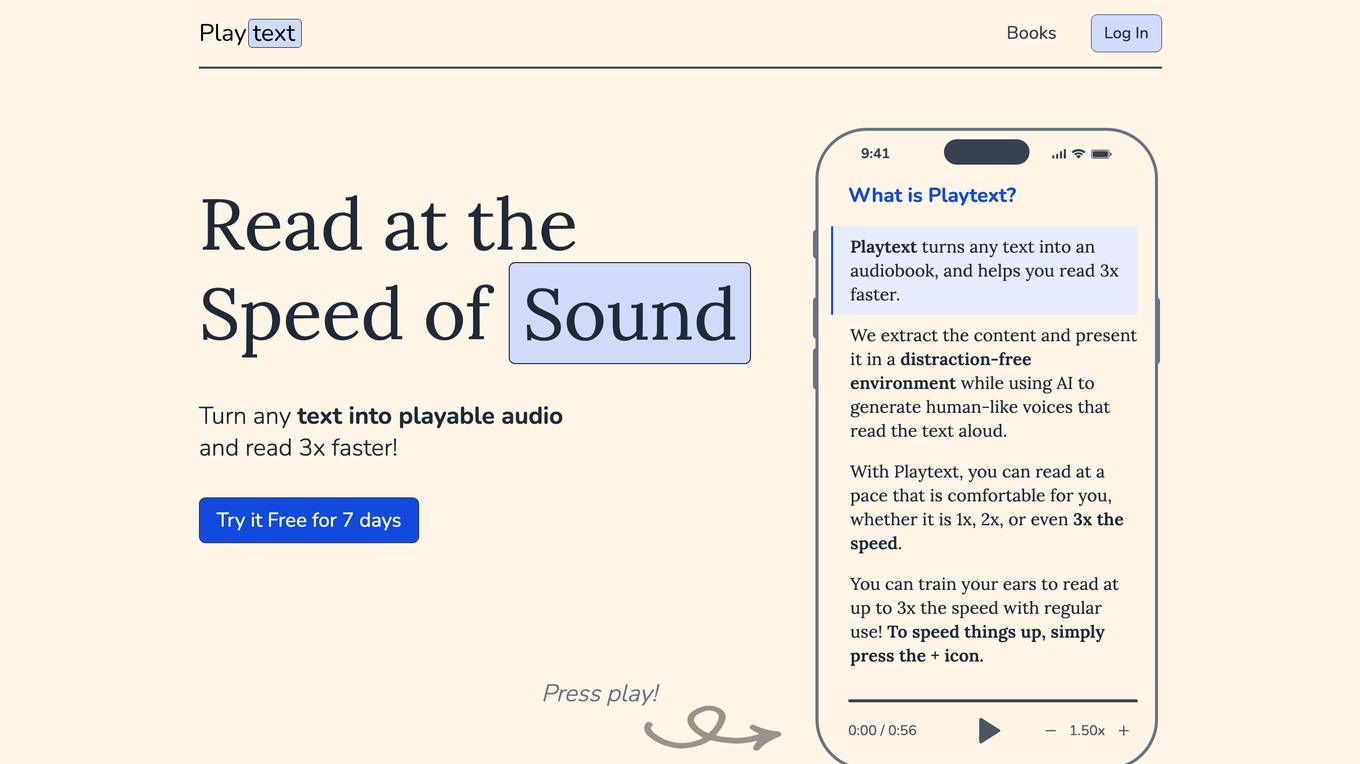
Playtext
Playtext is a web application that allows users to save web articles and convert them into audiobooks. In a world filled with short attention spans and information overload, Playtext aims to help users read more by providing a read-it-later app similar to Pocket or Instapaper. Users can have their favorite articles read aloud to them by human-like voices, and even train their ears to read at up to 3x the speed. By enabling users to read and listen simultaneously, Playtext enhances content retention and comprehension, offering a new way to enjoy reading and consuming information.
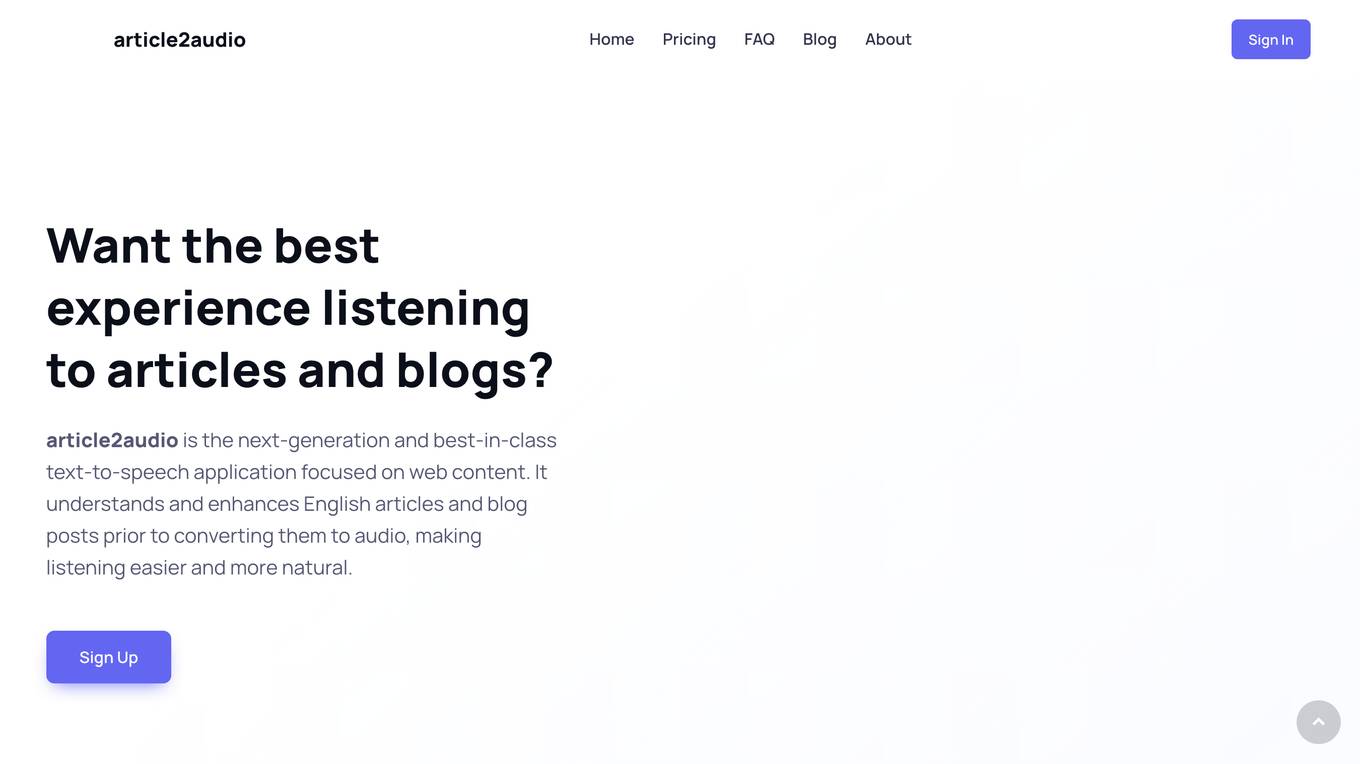
article2audio
Article2audio is a text-to-speech application that focuses on web content. It uses AI to understand and enhance English articles and blog posts before converting them to audio, making listening easier and more natural. Some of its key features include descriptive imagery, table summaries, complex text interpretation, and meaningful voice-overs.
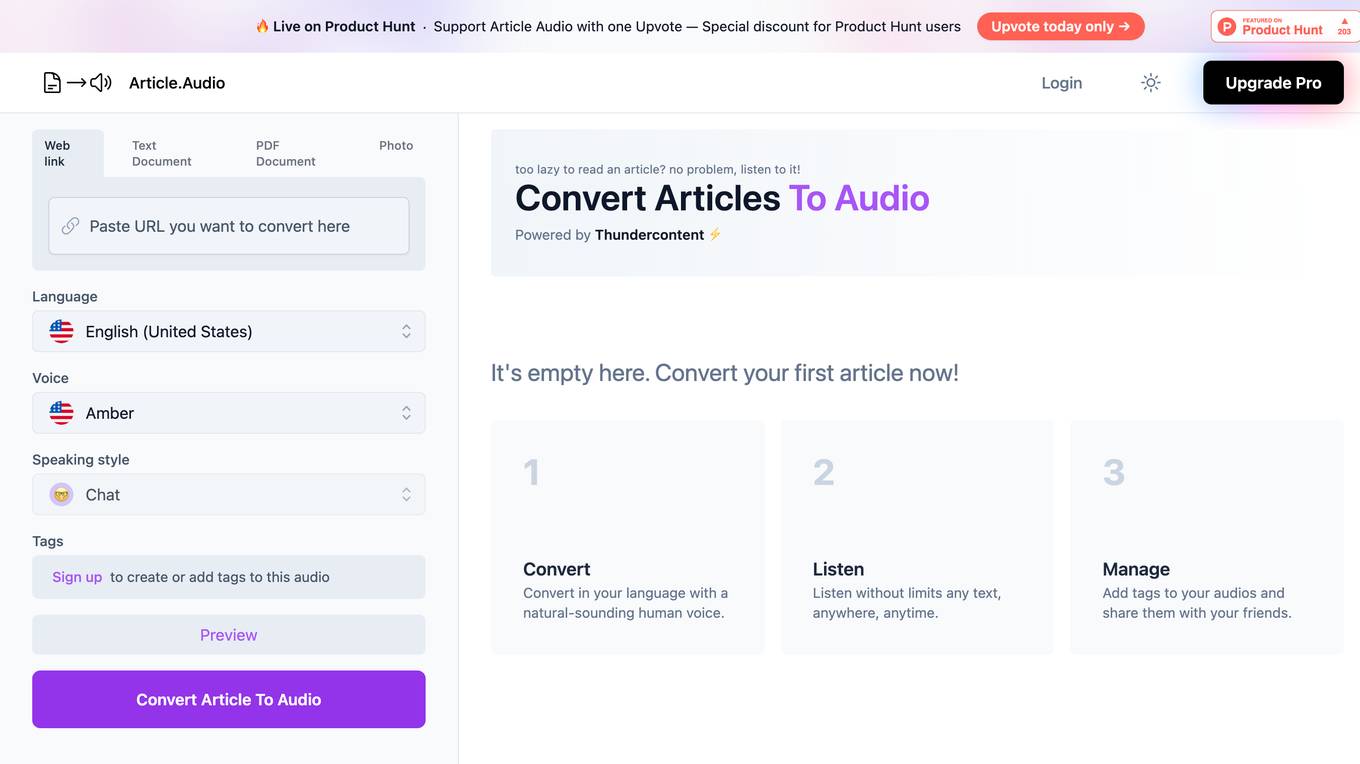
Article.Audio
Article.Audio is a web application that allows users to convert articles into audio files, enabling them to listen to the content instead of reading it. Users can easily convert text documents, PDFs, and web links into audio format using natural-sounding human voices. The application offers a user-friendly interface and supports multiple languages and voice styles. Article.Audio is powered by Thundercontent and aims to provide a convenient and accessible way for users to consume written content on the go.
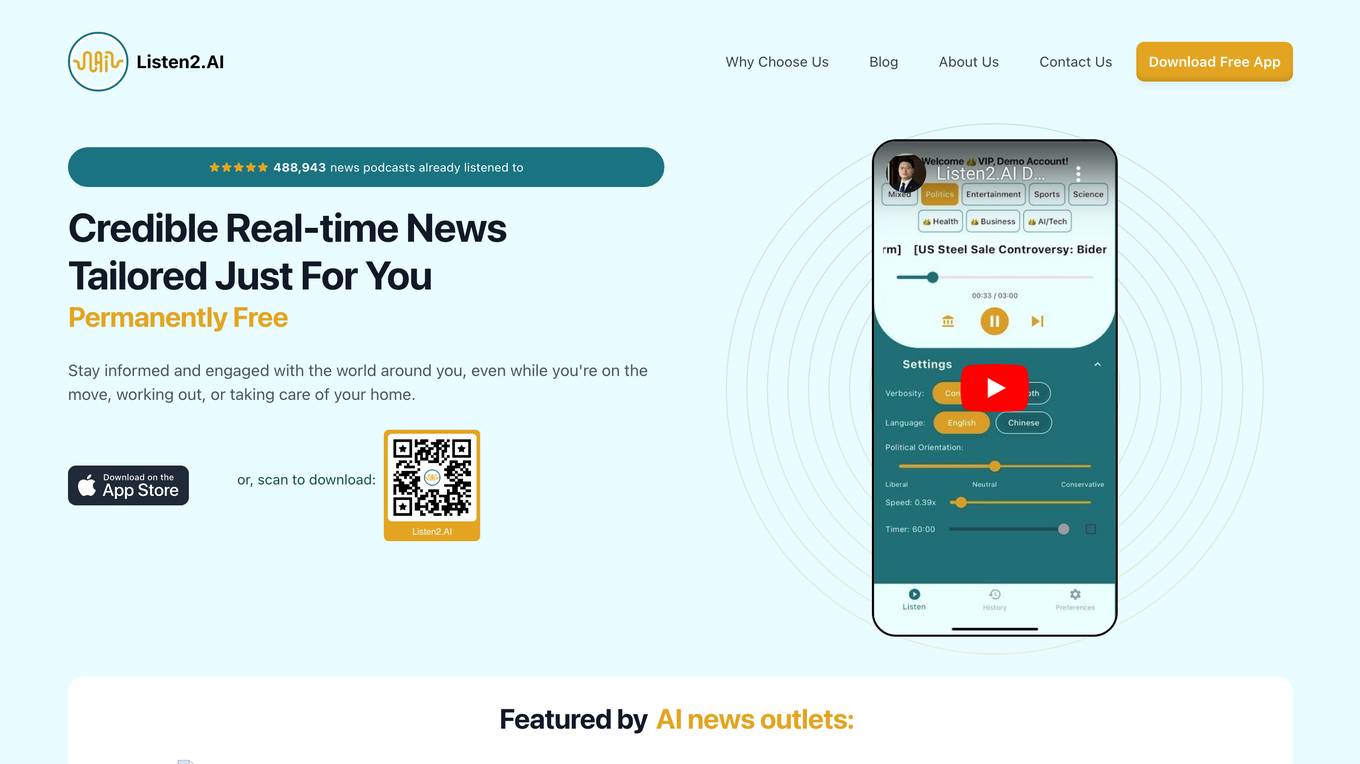
Listen2.AI
Listen2.AI is a mobile application that provides real-time news in a podcast format. It offers hands-free news consumption, multilingual support, and diverse perspectives. The app is designed to keep users informed and engaged with the world around them, even when they are on the move or multitasking.
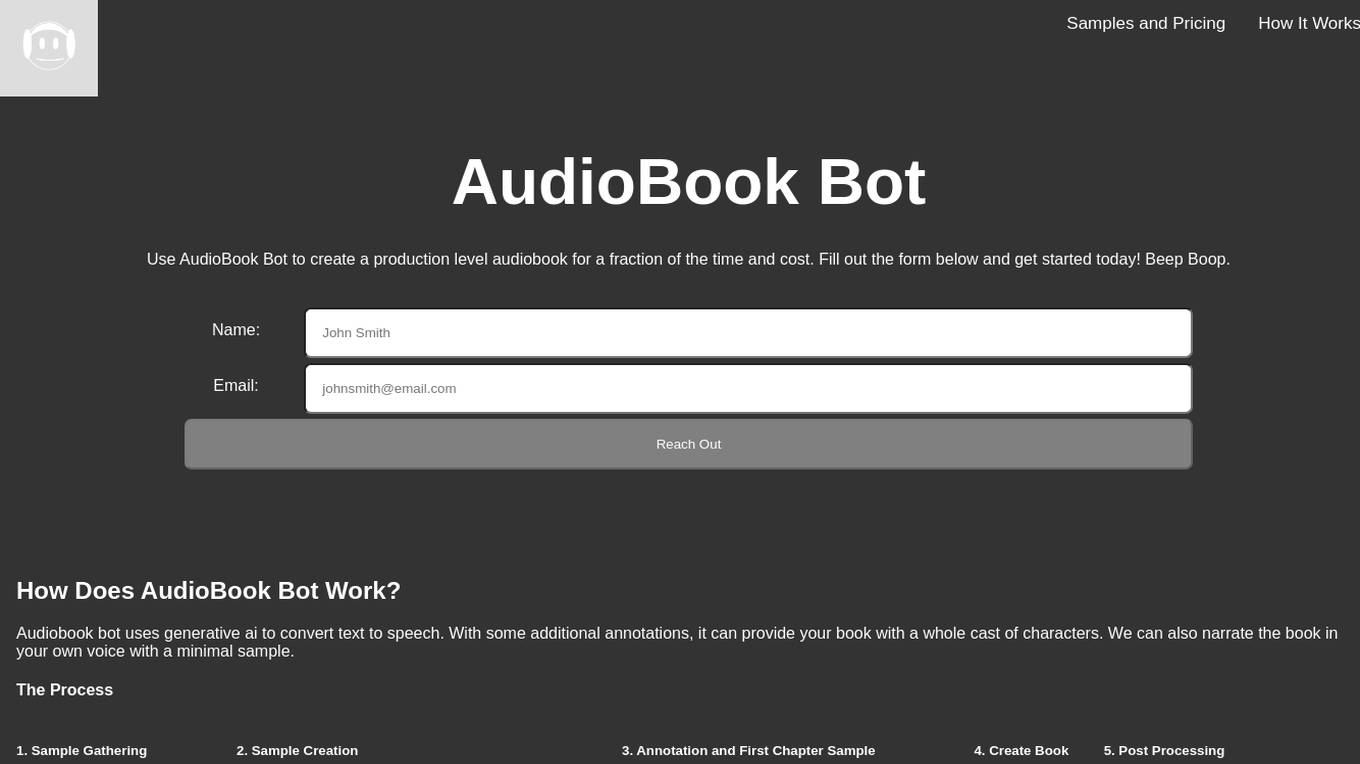
AudioBook Bot
AudioBook Bot is an AI-powered application that converts text into spoken audio, providing users with the convenience of listening to books and other text-based content. The tool utilizes advanced natural language processing and speech synthesis technologies to create high-quality audio renditions. Users can simply input text, and the bot will generate an audio version that can be played on various devices. With its user-friendly interface and efficient processing capabilities, AudioBook Bot offers a seamless experience for those who prefer listening over reading.
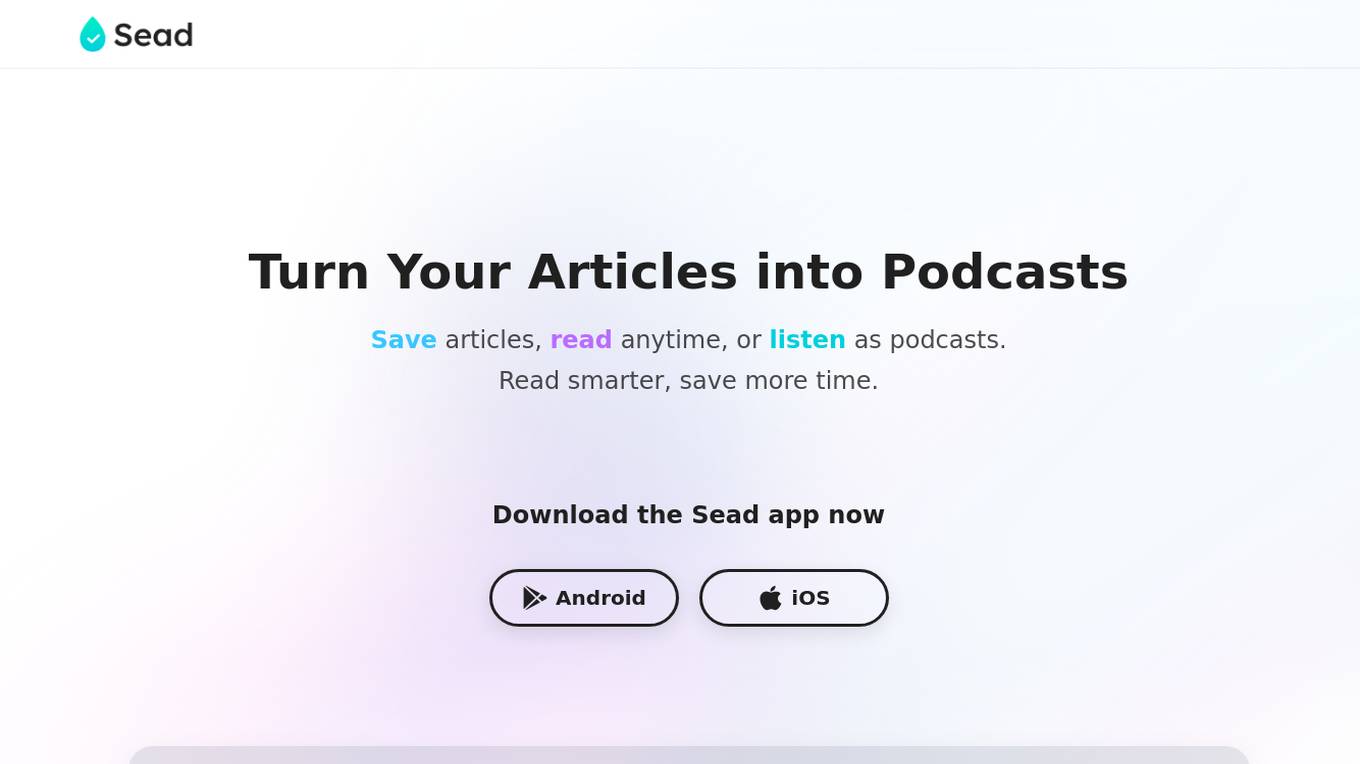
Sead
Sead is an AI-powered application that transforms articles into podcasts, offering users the flexibility to read or listen to content at their convenience. By leveraging AI technology, Sead enhances the reading experience by providing audio narration, summarizing key points, and enabling translation into multiple languages. Users can save time, improve understanding, and multitask efficiently with Sead's intelligent features. The app aims to streamline the consumption of information and promote a smarter way of reading and listening.
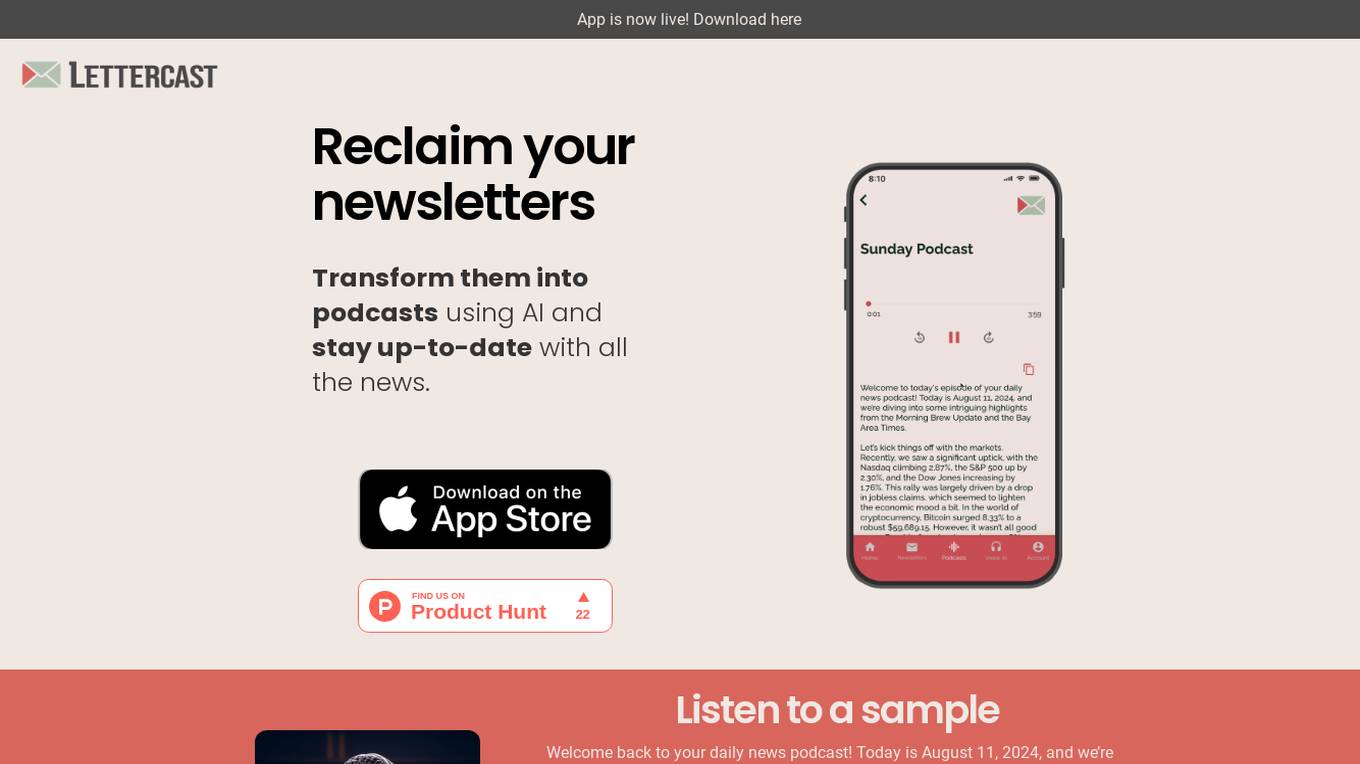
Lettercast
Lettercast is an AI-powered application that transforms your newsletters into personalized audio and text summaries, allowing you to stay up-to-date with all the news on the go. It converts your newsletters into bite-sized podcasts using the latest AI technology, providing a convenient way to consume information while commuting, working out, or cooking. With no limit on the number of newsletters you can convert, Lettercast ensures that you can listen to your daily podcasts at your convenience, all while prioritizing data security and user privacy.
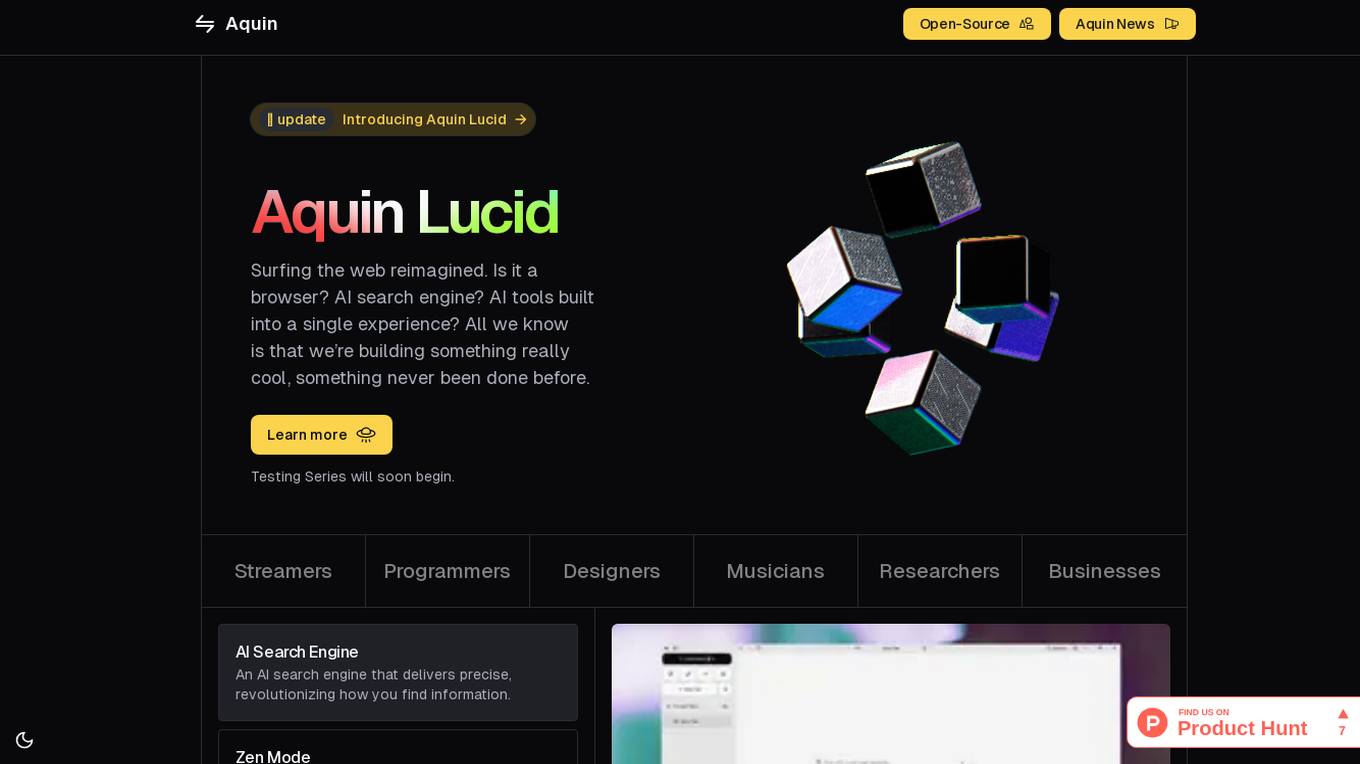
Aquin Lucid
Aquin Lucid is an innovative AI-powered browser and search engine that redefines the web browsing experience. It combines AI tools, productivity features, and privacy-focused browsing to deliver a unique and secure online experience. Aquin Lucid offers a range of features such as Zen Mode for distraction-free browsing, Split View for multitasking, AI integrations for local files, and a secure environment with no cloud storage. The application aims to revolutionize how users interact with the web by providing precise search results, enhanced productivity, and seamless browsing.
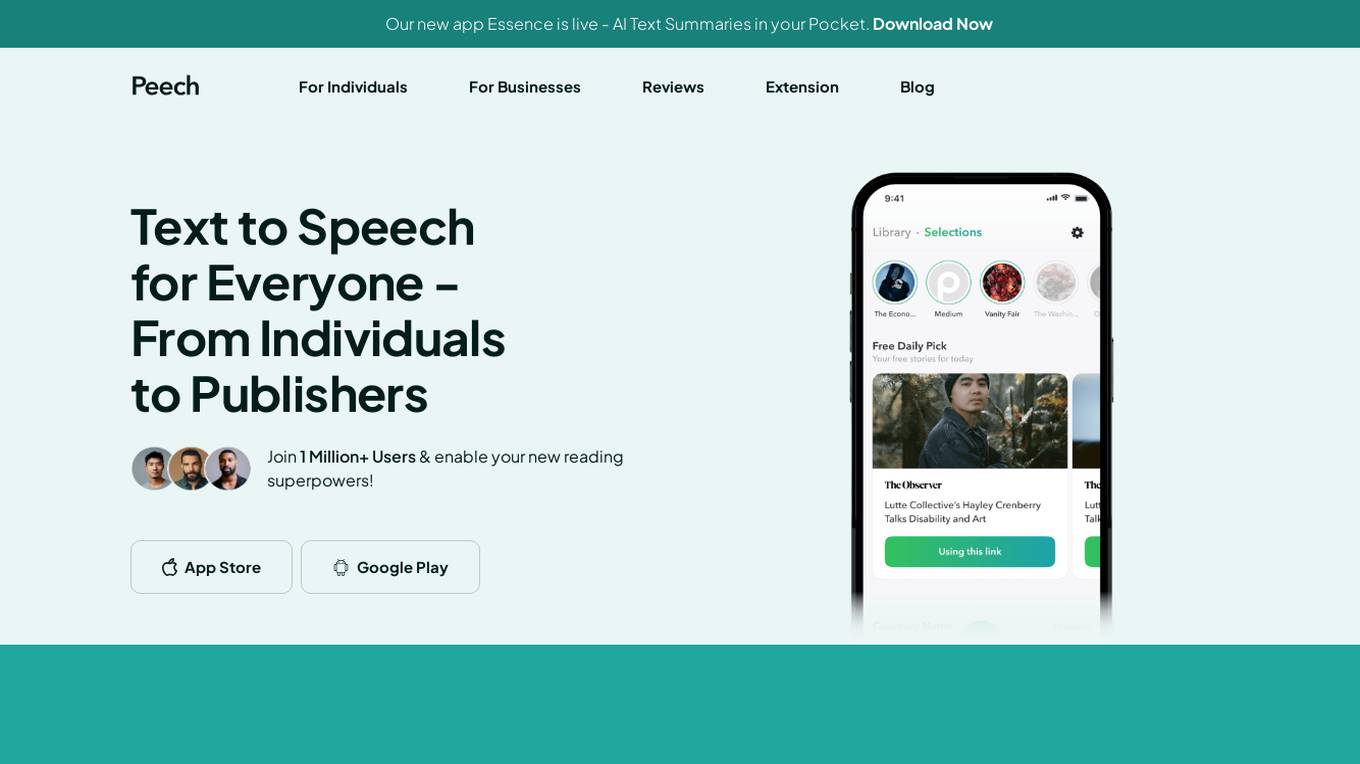
Peech
The website offers an AI-powered application called Peech that converts text into captivating audiobooks, suitable for individuals with dyslexia, ADHD, vision disabilities, or those who prefer listening over reading. It provides features like instant audio in multiple languages, AI voice selection, diverse input formats, and smart content analysis. Peech is beneficial for both individuals and publishers, offering affordable pricing, engaging content, and high-quality audio. Users can transform web articles, e-books, and various texts into audiobooks effortlessly, reaching a wider audience. The application has received positive reviews for its effectiveness in studying, multitasking, and providing an immersive reading experience.

BugFree.ai
BugFree.ai is an AI-powered platform designed to help users practice system design and behavior interviews, similar to Leetcode. The platform offers a range of features to assist users in preparing for technical interviews, including mock interviews, real-time feedback, and personalized study plans. With BugFree.ai, users can improve their problem-solving skills and gain confidence in tackling complex interview questions.
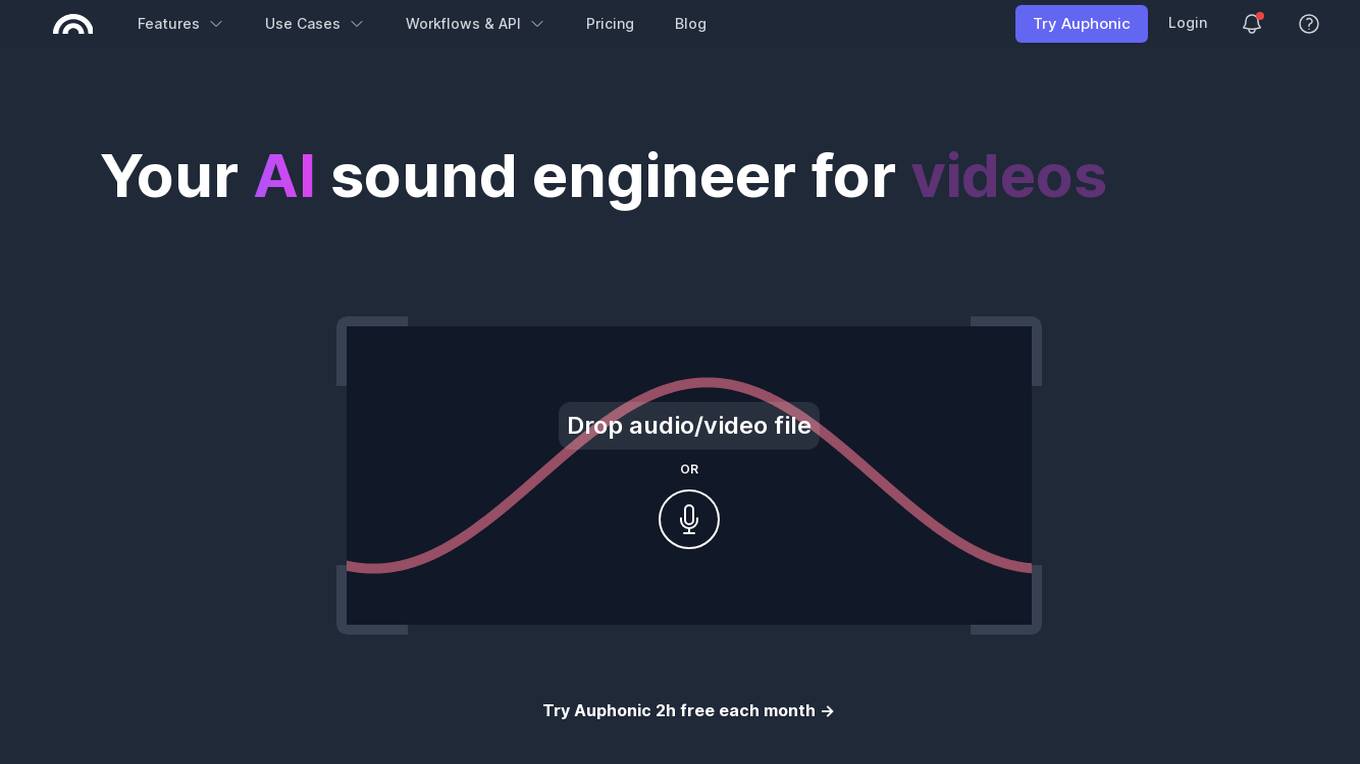
Auphonic
Auphonic is an AI-powered audio post-production web tool designed to help users achieve professional-quality audio results effortlessly. It offers a range of features such as Intelligent Leveler, Noise & Reverb Reduction, Filtering & AutoEQ, Cut Filler Words and Silence, Multitrack Algorithms, Loudness Specifications, Speech2Text & Automatic Shownotes, Video Support, Metadata & Chapters, and more. Auphonic is widely used by podcasters, educators, content creators, and audiobook producers to enhance their audio content and streamline their workflows. With its intuitive interface and advanced algorithms, Auphonic simplifies the audio editing process and ensures consistent audio quality across different platforms.
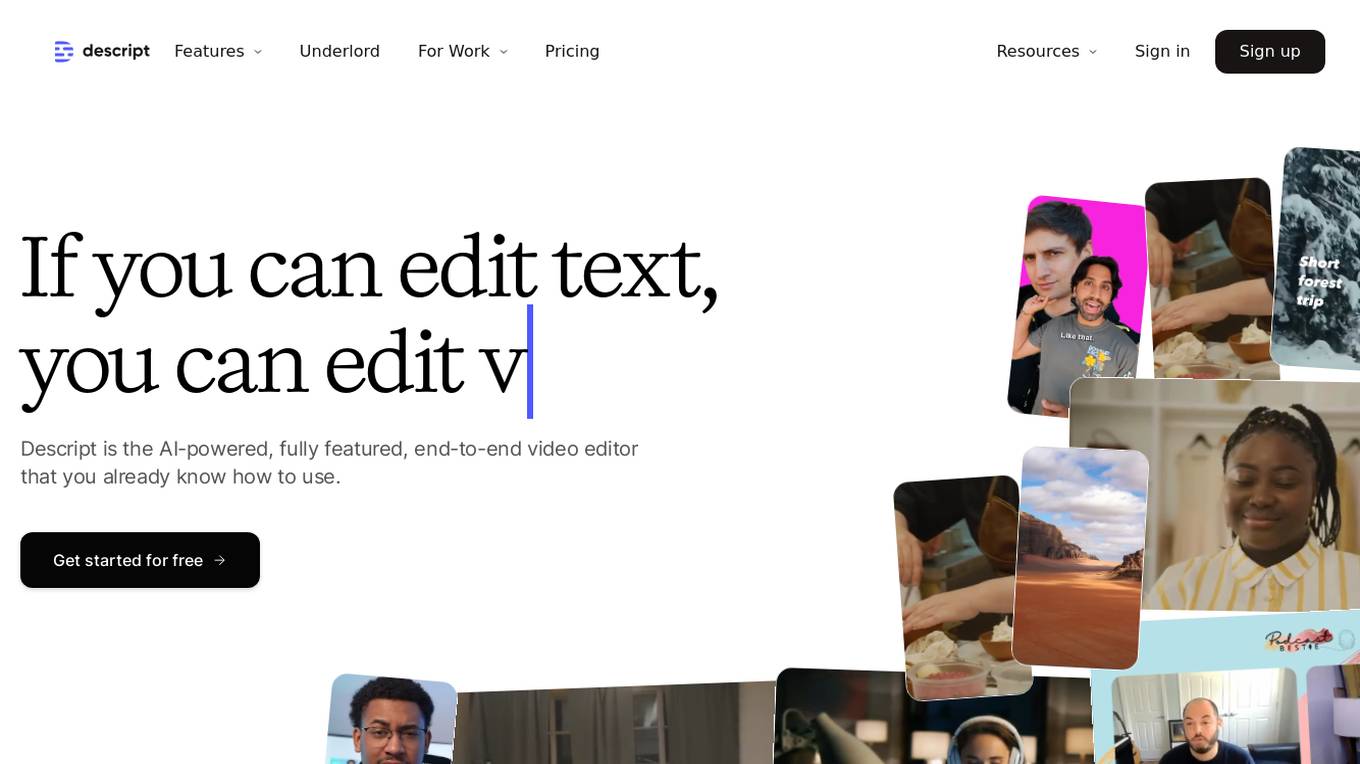
Descript
Descript is an AI-powered editing assistant that allows users to edit videos and podcasts with ease. It offers features such as video editing, multitrack audio editing, clip selection, remote recording, captions, screen recording, transcription, AI speech generation, and more. Descript's AI capabilities help users create high-quality content effortlessly, making it a valuable tool for creators and teams. With a user-friendly interface and advanced AI features, Descript simplifies the video editing process and enhances productivity.
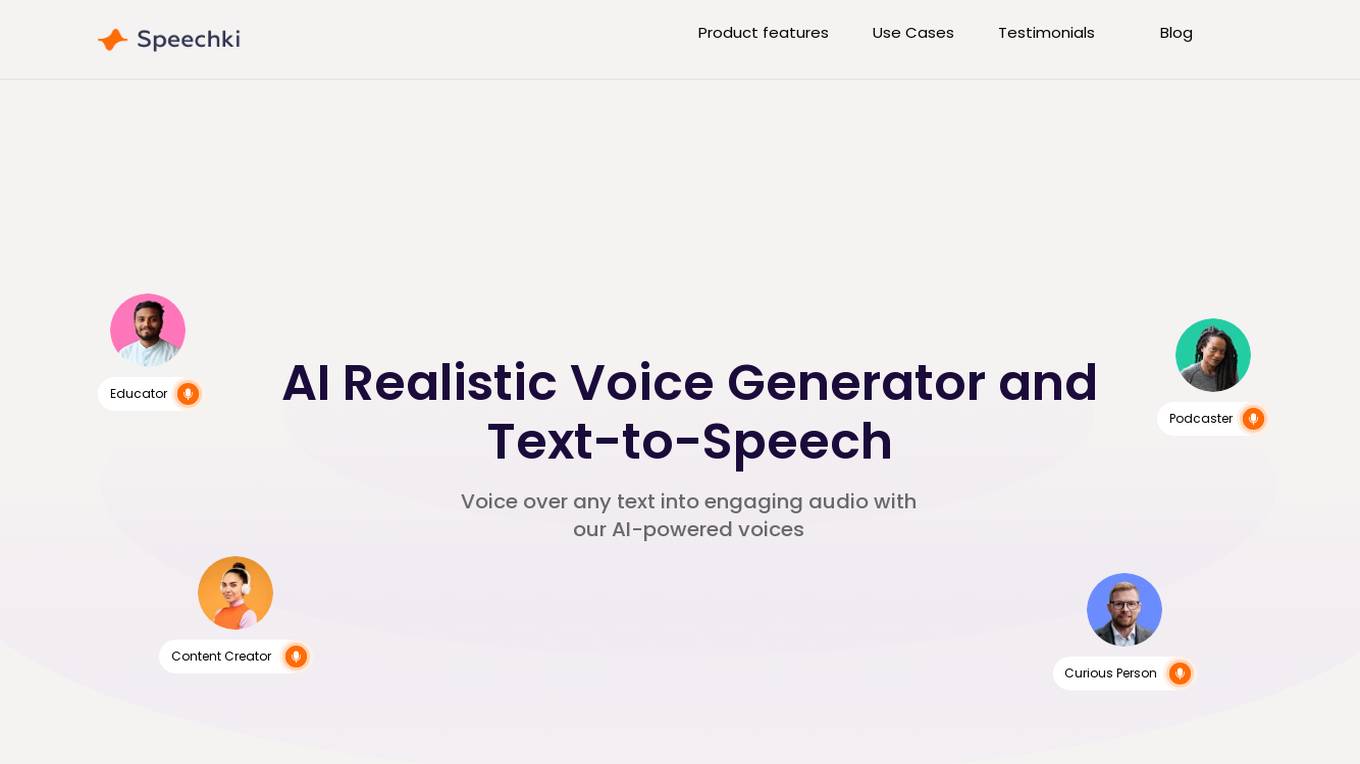
Speechki
Speechki is an AI Realistic Voice Generator and Text-to-Speech Solution offering over 1,100 voices in 80+ languages. It provides a user-friendly platform for converting text into engaging audio with AI-powered voices. The application is designed to cater to various needs such as audiobook production, content creation, podcasting, and more. With features like real-time proof-listening, chapter-like formatting, streamlined role management, precision pause control, and nuanced speech control, Speechki aims to enhance the user experience and deliver lifelike audio output. The tool also offers global reach with multicast and multilanguage support, making it suitable for a diverse audience.

Push Lap Wholesale
Push Lap Wholesale is a powerful Amazon wholesale sourcing tool that helps you find profitable products, save time, and hit your targets. With 97% matching accuracy, you can quickly scan your bulk price lists and never miss a potential profitable product. Our world-class platform provides you with detailed product information, including Keepa charts, historical averages, profit calculations, variation data, competition analysis, and multipack adjustments. You can also create and manage suppliers' purchase lists, export them as CSV files, and get the total cost and profit of each list. Additionally, we provide you with 500+ auto-ungate ASINs for free and access to a list of over 4,000 vetted and verified distributors with contact details.
0 - Open Source AI Tools
1 - OpenAI Gpts
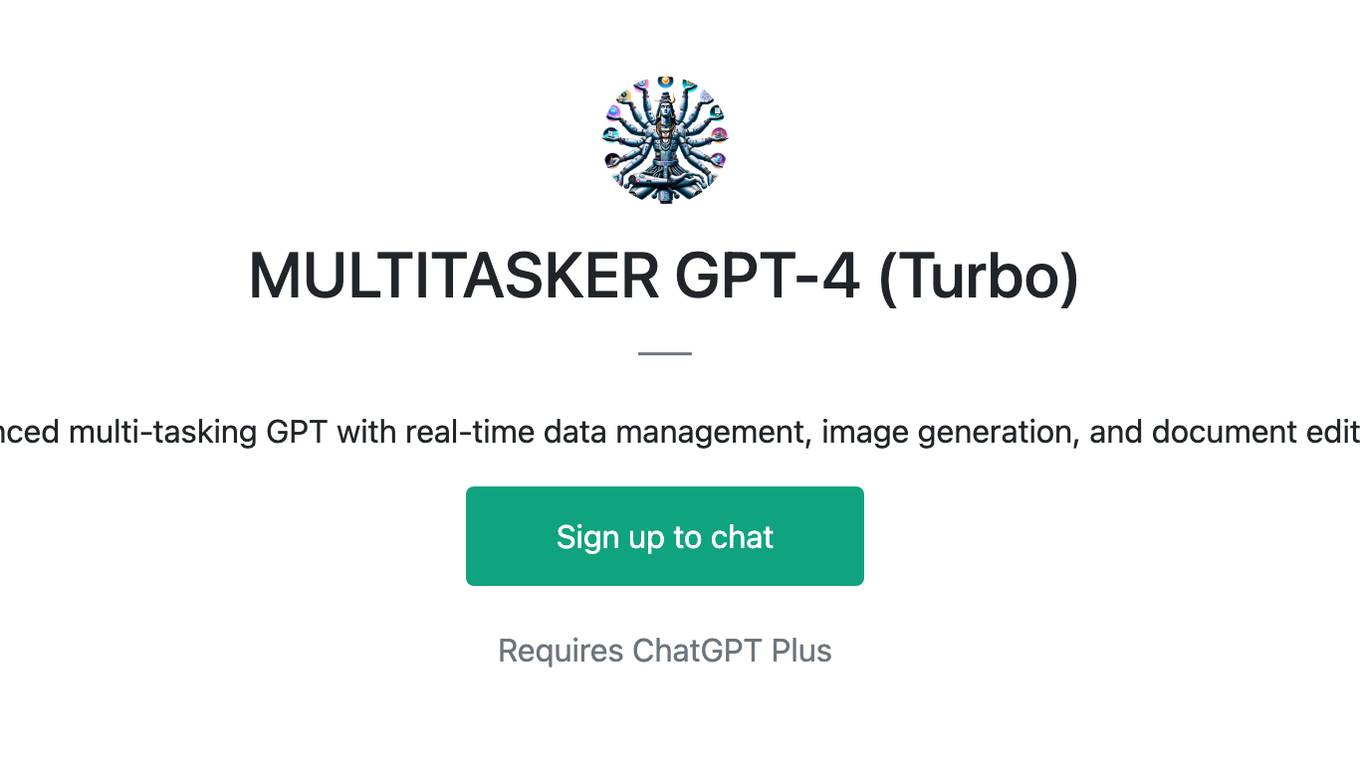
MULTITASKER GPT-4 (Turbo)
Advanced multi-tasking GPT with real-time data management, image generation, and document editing.